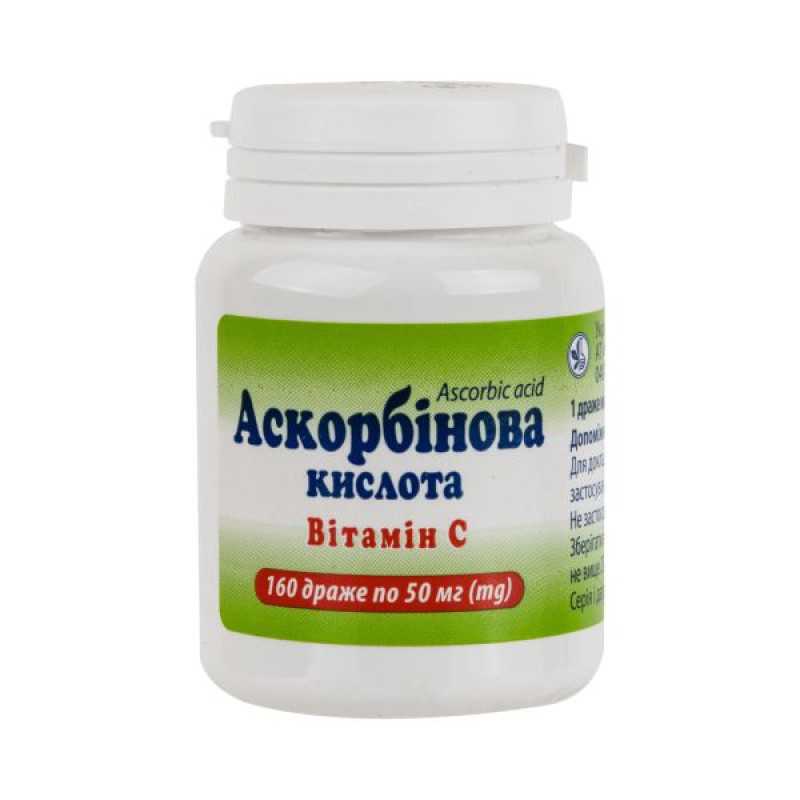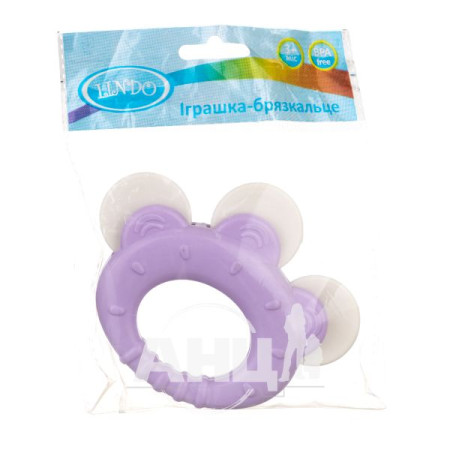Ascorbic acid dragees 0.05 g container No. 160

Instructions Ascorbic acid dragees 0.05 g container No. 160
Composition
active ingredient: 1 dragee contains ascorbic acid (vitamin C) 50 mg;
excipients: sugar, starch syrup, talc, yellow wax, light mineral oil, orange flavoring, quinoline yellow dye (E 104).
Dosage form
Dragee.
Main physical and chemical properties: yellow dragee. In appearance, it should have a spherical shape. The surface of the dragee should be uniform in color.
Pharmacotherapeutic group
Simple preparations of ascorbic acid (vitamin C). Ascorbic acid (vitamin C). ATX code A11G A01.
Pharmacological properties
Pharmacodynamics
Ascorbic acid (vitamin C) has pronounced reducing properties. It belongs to the group of water-soluble vitamins. It participates in redox reactions, regulation of carbohydrate metabolism, affects the metabolism of aromatic amino acids, thyroxine metabolism, biosynthesis of catecholamines, steroid hormones and insulin, is necessary for blood clotting, synthesis of collagen and procollagen, regeneration of connective and bone tissue. Improves capillary permeability. Promotes iron absorption in the intestine and participates in the synthesis of hemoglobin. Increases nonspecific resistance of the body, has antidote properties. Vitamin C deficiency in food leads to the development of hypo- and avitaminosis C, since this vitamin is not synthesized in the body.
Pharmacokinetics
Absorption of ascorbic acid occurs mainly in the small intestine. The absorption process may be impaired in intestinal dyskinesia, enteritis, achilli, helminthic invasion, giardiasis, as well as in the use of alkaline drinks, fresh fruit and vegetable juices. The maximum concentration of the drug in the blood plasma after oral administration is reached after 4 hours. It easily penetrates into leukocytes, platelets, and then into all tissues; it is deposited in the posterior pituitary gland, adrenal cortex, eye epithelium, intermediate cells of the seminiferous glands, ovaries, liver, brain, spleen, pancreas, lungs, kidneys, intestinal wall, heart, muscles, thyroid gland. It is metabolized mainly in the liver into deoxyascorbic acid and subsequently into oxaloacetic and diketogulonic acid. Unchanged ascorbate and metabolites are excreted in the urine, feces, and also penetrate into breast milk. When using high doses, when the concentration in the blood plasma reaches more than 1.4 mg / dl, excretion increases sharply, and increased excretion may persist after discontinuation of use.
Indication
Prevention and treatment of vitamin C deficiency.
Ensuring the body's increased need for vitamin C during growth, pregnancy or breastfeeding, with increased physical and mental stress, with infectious diseases and intoxications, hemorrhagic diatheses, in the complex therapy of bleeding (nasal, pulmonary, uterine), with radiation sickness, Addison's disease, overdose of anticoagulants, with soft tissue damage and infected wounds that heal slowly, bone fractures.
Contraindication
Hypersensitivity to ascorbic acid or to any of the excipients of the drug. Thrombosis, tendency to thrombosis, thrombophlebitis, diabetes mellitus, severe kidney disease. Urolithiasis - when using doses of more than 1 g per day. Fructose intolerance, glucose-galactose malabsorption syndrome.
Interaction with other medicinal products and other types of interactions
Ascorbic acid, when administered orally, increases the absorption of penicillin, tetracycline, and iron; promotes the absorption of aluminum in the intestines, which should be taken into account during simultaneous treatment with antacids containing aluminum.
The simultaneous use of vitamin C and deferoxamine increases tissue iron toxicity, especially in the heart muscle, which can lead to circulatory decompensation. Vitamin C can be used only 2 hours after the injection of deferoxamine.
Prolonged use of large doses by individuals treated with disulfiram inhibits the disulfiram-alcohol reaction.
High doses of the drug reduce the effectiveness of tricyclic antidepressants, neuroleptics - phenothiazine derivatives, tubular reabsorption of amphetamine, disrupt the excretion of mexiletine by the kidneys, and affect the resorption of vitamin B12.
Ascorbic acid increases the total clearance of ethyl alcohol. When using ascorbic acid in large doses and simultaneous use of alcohol, disulfiram-like reactions may develop.
The drug reduces the toxicity of sulfonamide drugs, reduces the effectiveness of heparin and indirect anticoagulants.
Vitamin C increases the excretion of oxalates in the urine, thus increasing the risk of oxalate stone formation in the urine, and increases the risk of crystalluria during treatment with salicylates.
Acetylsalicylic acid (aspirin) may reduce the absorption of ascorbic acid.
Concomitant use of salicylates with ascorbic acid may increase renal excretion of ascorbic acid.
Absorption of ascorbic acid is reduced with the simultaneous use of oral contraceptives, consumption of fruit or vegetable juices, and alkaline drinks.
Application features
When using high doses or with prolonged use of the drug, it is necessary to monitor kidney function and blood pressure, as well as pancreatic function. The drug should be used with caution in patients with a history of kidney disease.
In case of urolithiasis, the daily dose of ascorbic acid should not exceed 1 g.
Large doses of the drug should not be prescribed to patients with increased blood clotting.
Since ascorbic acid increases iron absorption, its use in high doses can be dangerous for patients with hemochromatosis, thalassemia, polycythemia, leukemia, and sideroblastic anemia. Patients with high iron levels in the body should use the drug in minimal doses.
Simultaneous use of the drug with alkaline drinks reduces the absorption of ascorbic acid, so you should not drink it with alkaline mineral water. Also, the absorption of ascorbic acid may be impaired in intestinal dyskinesias, enteritis and achilia.
Use with caution in patients with glucose-6-phosphate dehydrogenase deficiency.
Ascorbic acid as a reducing agent can affect the results of laboratory tests, for example, when determining the blood content of glucose, bilirubin, transaminase activity, and lactate dehydrogenase.
Since ascorbic acid has a mild stimulating effect, it is not recommended to use the drug at the end of the day. Due to the stimulating effect of ascorbic acid on the formation of corticosteroid hormones, when using the drug in high doses, monitoring of kidney function and blood pressure is required.
Ascorbic acid should be used with caution in patients with progressive cancer, as its use may complicate the course of the disease.
The drug may be harmful to teeth.
Use during pregnancy or breastfeeding
The drug can be used during pregnancy or breastfeeding when the potential benefit to the mother outweighs the possible risk to the fetus, in accordance with the dosage recommendations and the doctor's prescription and under his supervision. The recommended doses should be carefully followed and not exceeded.
Ability to influence reaction speed when driving vehicles or other mechanisms
Does not affect.
Method of administration and doses
The medicine should be taken orally after meals.
Adults and children over 14 years of age should take 1–2 tablets (50–100 mg) per day for prevention, and children aged 3 to 14 years should take 1 tablet (50 mg) per day.
Therapeutic doses for children over 14 years of age and adults are 1–2 tablets (50–100 mg) 3–5 times a day, for children aged 3 to 7 years – 1–2 tablets (50–100 mg) 2–3 times a day, aged 7–10 years – 2 tablets (100 mg) 2–3 times a day, aged 10–14 years – 2–3 tablets (100–150 mg) 2–3 times a day.
Pregnant women and women after childbirth and with low levels of vitamin C in breast milk should take 6 tablets (300 mg) per day for 10–15 days, then for prevention - 2 tablets (100 mg) per day throughout the entire breastfeeding period.
The duration of treatment depends on the nature and course of the disease and is determined by the doctor individually.
Children
The medicine should be used in children over 3 years of age.
Overdose
Ascorbic acid is well tolerated. It is a water-soluble vitamin, and excess amounts are excreted in the urine.
Symptoms. With prolonged use of vitamin C in large doses, inhibition of the function of the insular apparatus of the pancreas is possible, which requires monitoring of the condition of the latter. Overdose can lead to changes in the renal excretion of ascorbic and uric acids during urine acetylation with the risk of precipitation of oxalate stones.
The use of large doses of the drug may lead to vomiting, nausea, or diarrhea, which disappear after its withdrawal.
Treatment: Symptomatic therapy.
Side effects
On the part of the gastrointestinal tract: when used in a dosage of more than 1 g per day - irritation of the mucous membrane of the digestive tract, heartburn, nausea, vomiting, diarrhea.
On the part of the kidneys and urinary system: damage to the glomerular apparatus of the kidneys, crystalluria, formation of urate, cystine and/or oxalate stones in the kidneys and urinary tract, renal failure.
On the part of the immune system: Quincke's edema, sometimes anaphylactic shock in the presence of sensitization.
Skin and subcutaneous tissue disorders: skin rash, itching, urticaria, eczema.
On the part of the endocrine system: damage to the insular apparatus of the pancreas (hyperglycemia, glucosuria) and impaired glycogen synthesis up to the appearance of diabetes mellitus.
From the blood and lymphatic system: thrombocytosis, hyperprothrombinemia, thrombocytopenia, erythrocytopenia, neutrophilic leukocytosis; in patients with glucose-6-phosphate dehydrogenase deficiency, red blood cell hemolysis may occur, hemolytic anemia (in patients with glucose-6-phosphate dehydrogenase deficiency).
From the nervous system: increased excitability, sleep disturbances, headache, feeling of heat, fatigue.
Metabolic disorders: zinc and copper metabolism disorders.
Expiration date
3 years.
Storage conditions
Store in the original packaging at a temperature not exceeding 25 °C.
Keep out of reach of children.
Packaging
50 tablets in blisters.
160 dragees in containers (jars).
160 dragees in a container (jar); 1 container (jar) in a pack.
Vacation category
Without a prescription.
Producer
JSC "KYIV VITAMIN FACTORY".
Address
04073, Ukraine, Kyiv, Kopylivska St., 38.
Website: www.vitamin.com.ua
There are no reviews for this product.
There are no reviews for this product, be the first to leave your review.
No questions about this product, be the first and ask your question.
















